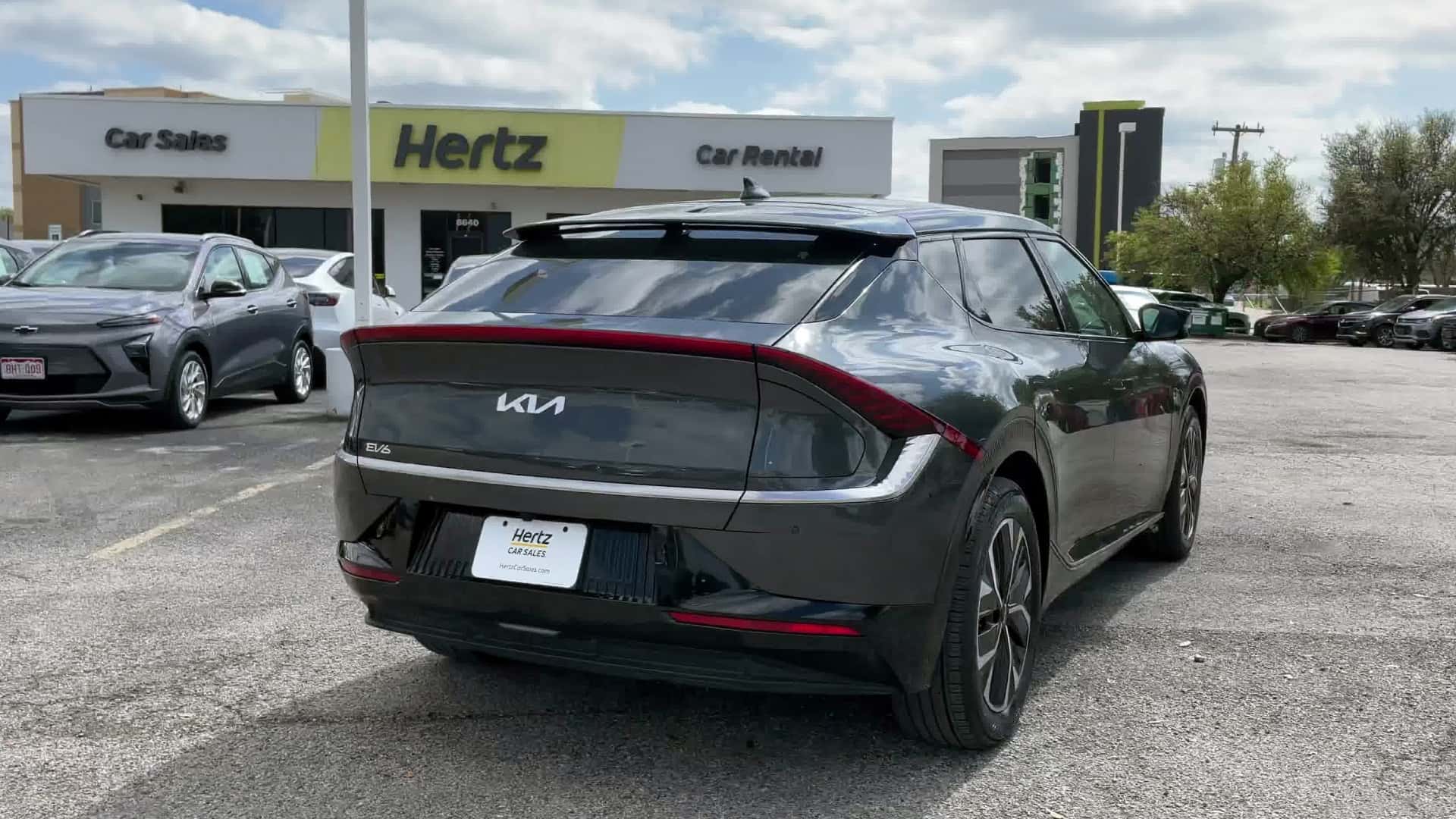
HERTZ TO SELL OFF EVEN MORE EVS AS DEPRECIATION LOSSES MOUNT
But the rental giant's losses can be your gain if you're shopping electric and want to save a buck.
The whole plan, it must be said, had the best of intentions.
American rental car giant Hertz saw the way the car market was going and decided to invest in building the largest electric vehicle rental fleet in North America back in 2021. That meant hundreds of thousands of EVs from Tesla, General Motors, Kia, Polestar, Volvo and more. It even got Tom Brady involved in the whole thing.
Unfortunately, a complicated confluence of events—including rapid-fire EV price cuts in 2023 that led to massive depreciation and higher repair costs—have led to nothing but headaches for Hertz. The company has endured massive losses, said goodbye to the CEO behind the move and has since spent the past few months offloading those EVs at fire-sale prices.
This week, the company announced that it's not even done. Hertz's first-quarter financial statement reveals that the company is increasing the amount of EVs it plans to sell privately this year by 10,000 units, aiming for a goal of 30,000 EVs sold in 2024. And it also admitted how much it's been stung by depreciation.
"The company incurred a $195 million charge to vehicle depreciation to write down the EVs held for sale which were remaining in inventory at quarter-end to fair value and recognize the disposition losses on EVs sold in the period," Hertz officials said. It added that depreciation costs are up $339 per vehicle now, and that "of the $339 per unit increase, $119 was related to EVs held for sale."
When you look at the situation on paper, Hertz's retreat from its aggressive EV makes financial sense. Post-pandemic travel is still going strong and so is the rental car business, even with increased competition from rideshare companies like Uber and Lyft or even Turo. Hertz's own Q1 revenue was $2.1 billion, up 2% from 2023. But thanks in large part to huge depreciation costs—almost a third of which it blames on EVs—Hertz's adjusted earnings before interest, taxes, depreciation, and amortization still amounted to $567 million in quarterly losses. In other words, ouch.
Hertz's EV woes have often been depicted as a sign of trouble for the electric segment, or that vast swaths of mainstream consumers aren't "ready" to move away from gasoline entirely. (To be fair, Hertz's own electric rental experience leaves a lot to be desired—something I experienced myself recently, and will write about here on InsideEVs soon.) But that's an oversimplification of a few market forces at work here.
First and foremost, last year's round of constant EV price cuts and discounts, led by Tesla, have had a profound impact on the value of cars. That includes private owners, but for companies like Hertz that drive significant revenue from a constant churn of cars in and out of the fleets, it was a major roadblock. And then you had other problems, like higher repair costs after mishaps from customers not used to electric acceleration and trouble sourcing parts from companies like Tesla and Polestar.
Still, it's important to know that Hertz's losses can be your gain. The company has a dedicated portal to search for the EVs it has for sale, and many of them can be had for extremely reasonable prices and relatively low miles. We're talking 2023 Chevrolet Bolt EVs and EUVs for under $20,000, Kia EV6s for under $30,000, over 100 Mercedes EQBs for sale under or around $40,000, and still probably the cheapest Tesla Model 3s you can find anywhere.
One owner of the investment firm that runs Hertz recently told Bloomberg, "My strong suspicion is that in the not-too-distant future, we’ll have figured all this stuff out." It's hard to fathom the idea that more widespread EV rentals won't somehow be the future. Until then, if you're looking for a not-expensive way to break up with gasoline, consider repatriating a retired rental car.
More EV Rental News
- The Ford Mustang Mach-E Is Coming To A Dealer Near You. As A Rental Car
- So You Want To Buy One Of Hertz’s Cheap Used Teslas. Should You?
- Hertz Is Walking Back A Big Bet On EVs. Here's What's Really Going On
- Rental Company Sixt Phases Out Tesla EVs From Fleet
- Hertz's Model 3 And Model Y Rentals Now Allow Full Tesla App Access
- Hertz Launches Massive EV Rental Program In The US